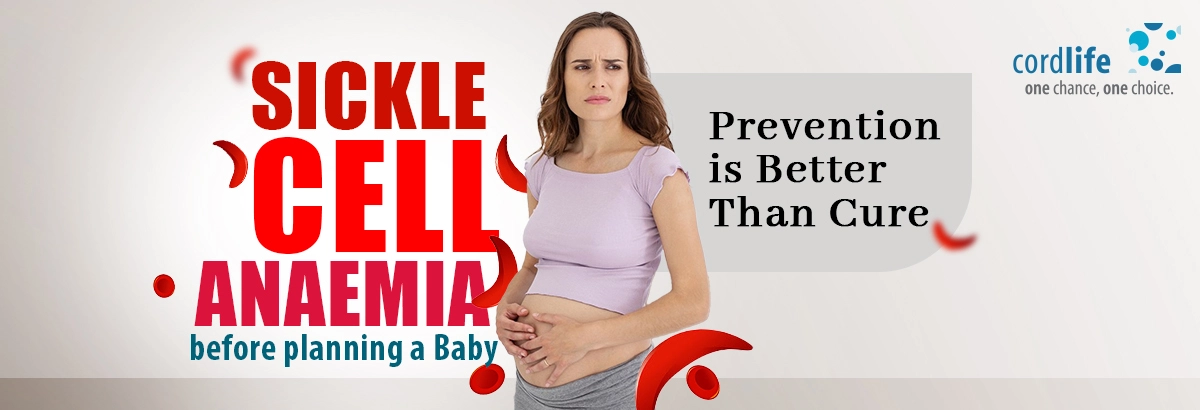The red blood cells carry oxygen to all the parts of your body helping you to live healthily. These cells are normally shaped like biconcave discs.
But, due to several hereditary blood disorders or genetic disorders, the red blood cells tend to alter their shape significantly. Sickle Cell Anaemia is one of them.
What is Sickle Cell Anaemia?
Sickle Cell Anaemia is a group of inherited blood disorders, which is characterised by anaemia. This anaemia is due to the breakdown of the deformed red blood cells (sickle cells) while negotiating small blood vessels. The sickle-shaped cells are also sticky. So, they stick together and clog the blood vessels disrupting the distal flow and causing damage to the organs supplied by the vessel, through severe pain, organ degeneration, and even death.
What is the Pattern of Inheritance of Sickle Cell Disease?
If you’re planning to start a family and both you or your partner are the carriers of this genetic disorder because it has passed down from either of your parents, remember there might be a 25% chance of your having a baby with sickle cell disease. It is essential for both parents to be carriers of the defective gene to be one that 25%.
Do You Know What to Do to Prevent Conceiving a Baby With Sickle Cell Anaemia Before Your Pregnancy?
Well! There are a few measures both of you can take before planning a baby. Some of them are as follows:
Blood (Haemato-Biochemical) Tests
Your healthcare practitioner might take you through a complete blood count with red cell indices and detection of haemoglobin variants by high /low pressure.
Speak to a Genetic Counsellor
If one of you are a carrier of this defective gene and the other one is normal, there will be no problem with your baby. If both of you are carriers, as there is a 25% chance of having a baby with sickle cell disease, it is best to opt for a pre-natal diagnosis, through your gynaecologist/Foetal medicine specialist.
Several Fertilisation Genetic Tests
These tests are available for you at various hospitals, local health departments, and SCD community-based organisations. These are the pre-implantation genetic diagnosis (PGD or PIGD) or fertilisation tests.
Once you are through with these tests, with the healthcare practitioner’s permission you can either try to conceive naturally or if the chances of your bearing the baby inside your womb are lower, take the help of technological intervention like IVF.
